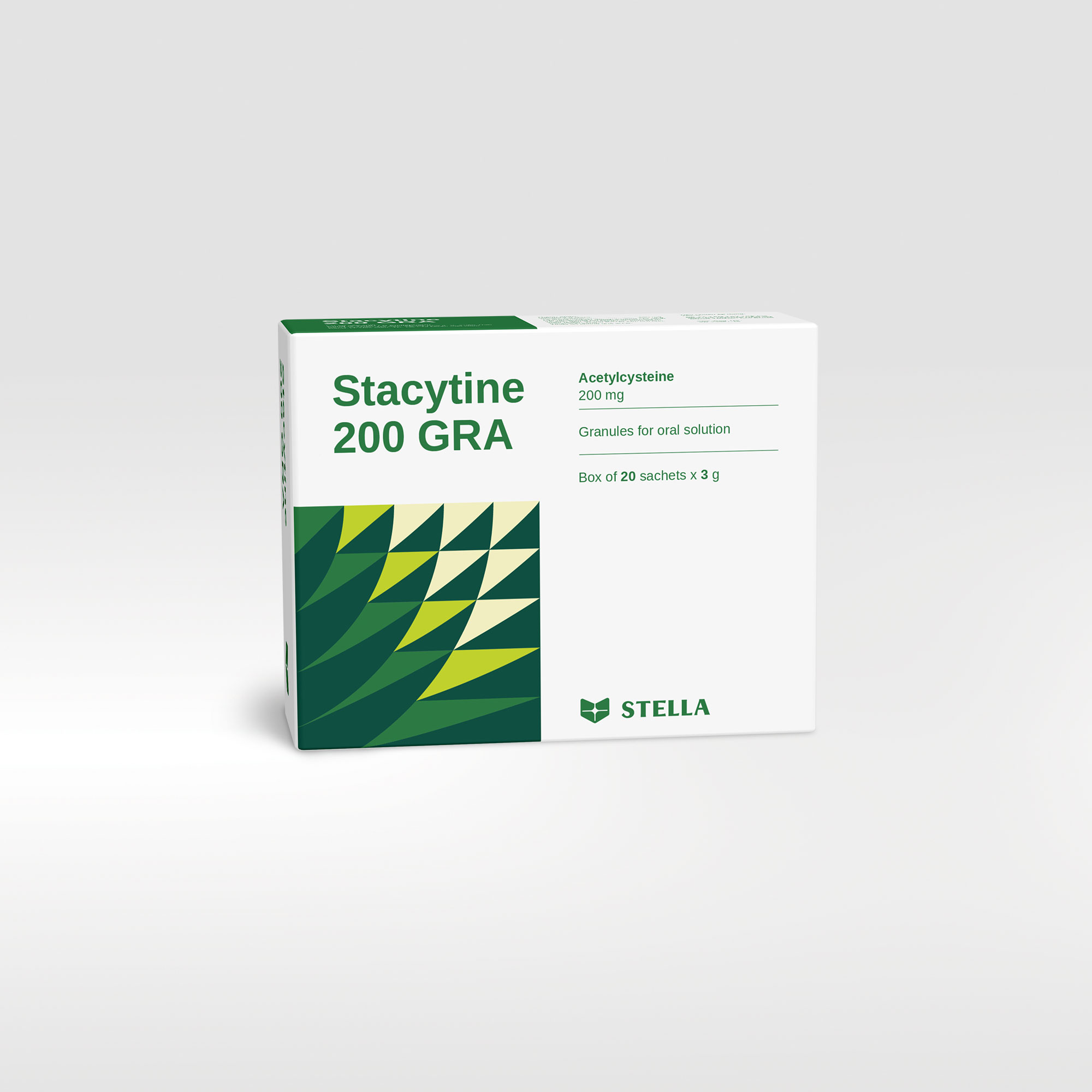Stacytine 200 GRA OTC
Acetylcysteine is a mucolytic-type mucomodifier.
| Pack size | Box of 20 sachets, 50 sachets |
| Shelf-life | 60 months |
| Composition | Acetylcysteine |
| Dosage forms and strengths | Granules for oral solution: 200 mg |
Product code :





